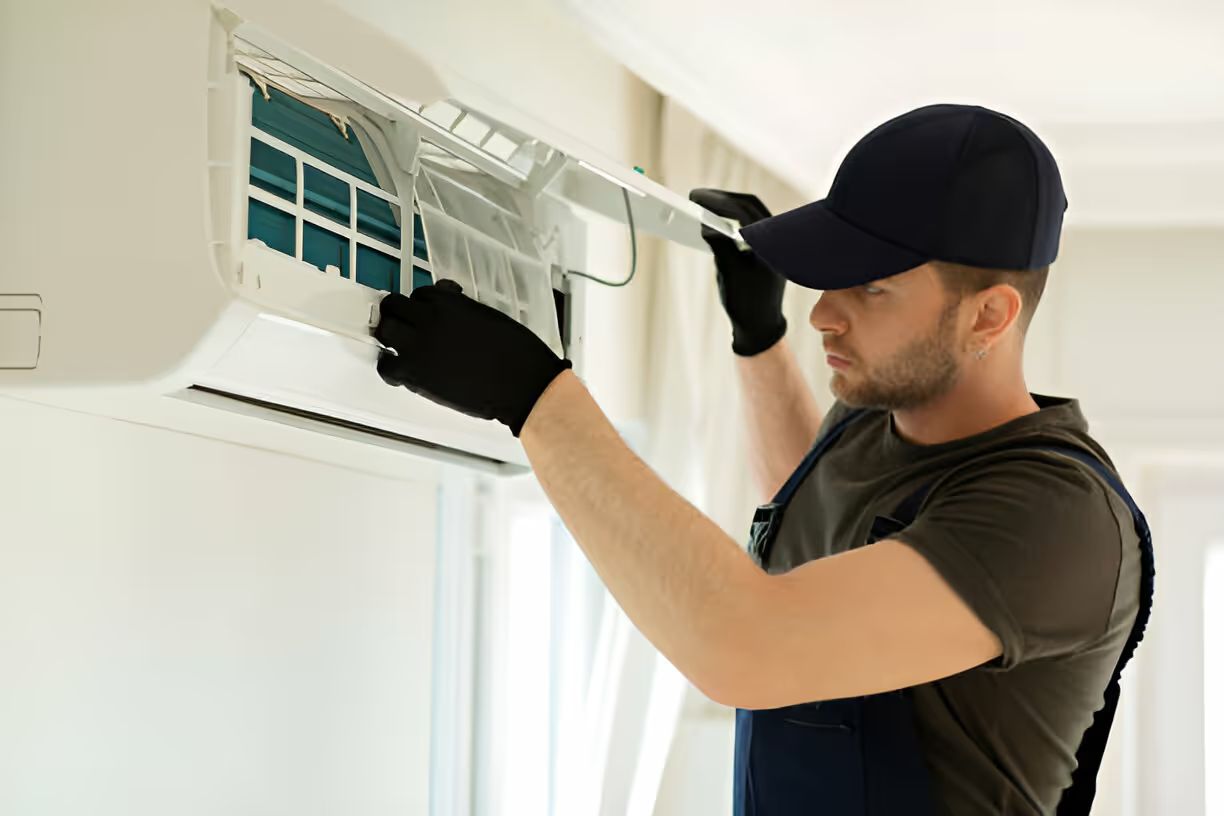Mini-Split Tune-Up in Brandon, FL


Why regular mini-split tune-ups matter in Brandon, FL
Brandon experiences long cooling seasons, high humidity, heavy pollen, and occasional storms. Those conditions accelerate coil fouling, clog condensate drains, and stress outdoor compressors. Regular tune-ups help:
- Maintain energy efficiency and lower monthly cooling costs.
- Prevent common failures during heat waves.
- Improve indoor air quality by keeping filters and coils clean.
- Protect components from moisture-related corrosion and clogging.
In short, a properly executed Mini-Split Tune-Up in Brandon, FL reduces emergency repairs, keeps systems running quietly, and helps units reach their expected service life.
Common mini-split problems in Brandon, FL homes
Homeowners in the Brandon area frequently encounter the same symptoms that signal it is time for a tune-up:
- Weak cooling or uneven room temperatures.
- System short cycling or frequent on-off cycles.
- Higher than normal energy bills during the cooling season.
- Unusual noises from indoor or outdoor units.
- Visible leaks, water on the floor, or overflowing condensate pans.
- Musty odors indicating mold or biological growth in the condensate system or coils.
Addressing these problems early through scheduled tune-ups prevents small issues from becoming expensive repairs.
What a Mini-Split Tune-Up in Brandon, FL includes
A comprehensive tune-up follows a checklist tailored to mini-split technology and local conditions. Typical tasks performed during a professional visit include:
Filter cleaning or replacement
- Remove, clean, or replace indoor filters to restore airflow and reduce strain on the system. In Brandon, frequent pollen and humidity make filter service especially important.
Indoor and outdoor coil cleaning
- Clean evaporator and condenser coils to improve heat transfer. Dirty coils reduce efficiency and increase run time during hot months.
Refrigerant pressure and leak check
- Measure refrigerant pressures and inspect for leaks. Low refrigerant causes poor cooling and compressor stress. Technicians verify correct charge and look for signs of leakage.
Thermostat calibration and controls check
- Verify thermostat accuracy and controller settings so set points match actual room temperatures and the system responds correctly.
Lubrication of moving parts and fan inspection
- Lubricate motors and check fan blades and mounts for wear or imbalance that creates noise and reduces airflow.
Condensate drain clearing and pan inspection
- Clear drain lines and clean condensate pans to prevent clogs, biological growth, and overflow that can cause water damage.
Electrical and safety checks
- Inspect wiring, connections, capacitors, contactors, and safety controls. Tighten loose connections and look for overheating.
Performance testing
- Measure temperature split, airflow, and run the system through a full cycle to confirm proper operation and efficiency under load.
Each task is performed with attention to Brandon-specific influences such as salt spray near coastal areas, high seasonal pollen, and humidity-driven mold risk.
Diagnostic process: what technicians look for
A methodical diagnostic process ensures tune-ups are thorough and accurate:
- Visual inspection of indoor and outdoor units for physical damage, debris, or animal nests.
- Filter check and air flow assessment to identify airflow restrictions.
- Electrical inspection for loose connections, voltage issues, and component wear.
- Refrigerant pressure checks and leak detection using appropriate tools.
- Coil and drain line inspection for contamination or blockages.
- Functional testing including thermostat reaction, system cycling, and sound level evaluation.
- Final performance verification with temperature difference and run-time analysis.
Technicians document findings and recommend corrective actions when issues beyond routine maintenance are found.
Typical repair and solution explanations
When a tune-up reveals problems, common solutions include:
- Replacing or deep-cleaning coils and filters to restore airflow and system efficiency.
- Repairing refrigerant leaks and recharging to correct pressure and cooling capacity.
- Replacing worn capacitors, contactors, or fan motors to prevent sudden failures.
- Thawing ice accumulation and diagnosing root causes such as low refrigerant or blocked airflow.
- Clearing and treating condensate drains to stop recurring clogs and mold growth.
Each repair focuses on bringing the system back to safe, efficient operation while preventing repeat issues through corrected root causes.
Recommended seasonal timing and maintenance frequency
For Brandon, FL, schedule tune-ups with the climate in mind:
- Primary timing: late winter or early spring before the heavy cooling season begins to ensure peak performance when temperatures rise.
- Secondary timing: late fall can be useful for heat pump mini-splits to confirm heating operation and address any seasonal wear.
- Frequency: annual tune-ups are the minimum. For homes with heavy use, high pollen exposure, or units that are older, consider biannual service.
Regularly scheduled visits under a bundled maintenance plan provide predictable upkeep, priority scheduling after storms, and consolidated documentation helpful for warranty compliance. Bundled plans often improve long-term cost effectiveness by preventing expensive emergency repairs.
Benefits beyond immediate repairs
A properly documented Mini-Split Tune-Up in Brandon, FL delivers broader advantages:
- Reduced energy costs through restored efficiency.
- Fewer mid-season breakdowns and more reliable comfort.
- Improved indoor air quality from cleaned filters and coils.
- Lower lifetime operating costs by catching wear early.
- Peace of mind knowing the system is optimized for local climate challenges.
Keeping your mini-split tuned and inspected is an investment in consistent comfort and lower long-term ownership costs. Regular maintenance adapts the system to Brandon specific conditions like humidity load and pollen levels, ensuring dependable performance throughout the year.
Service Areas


